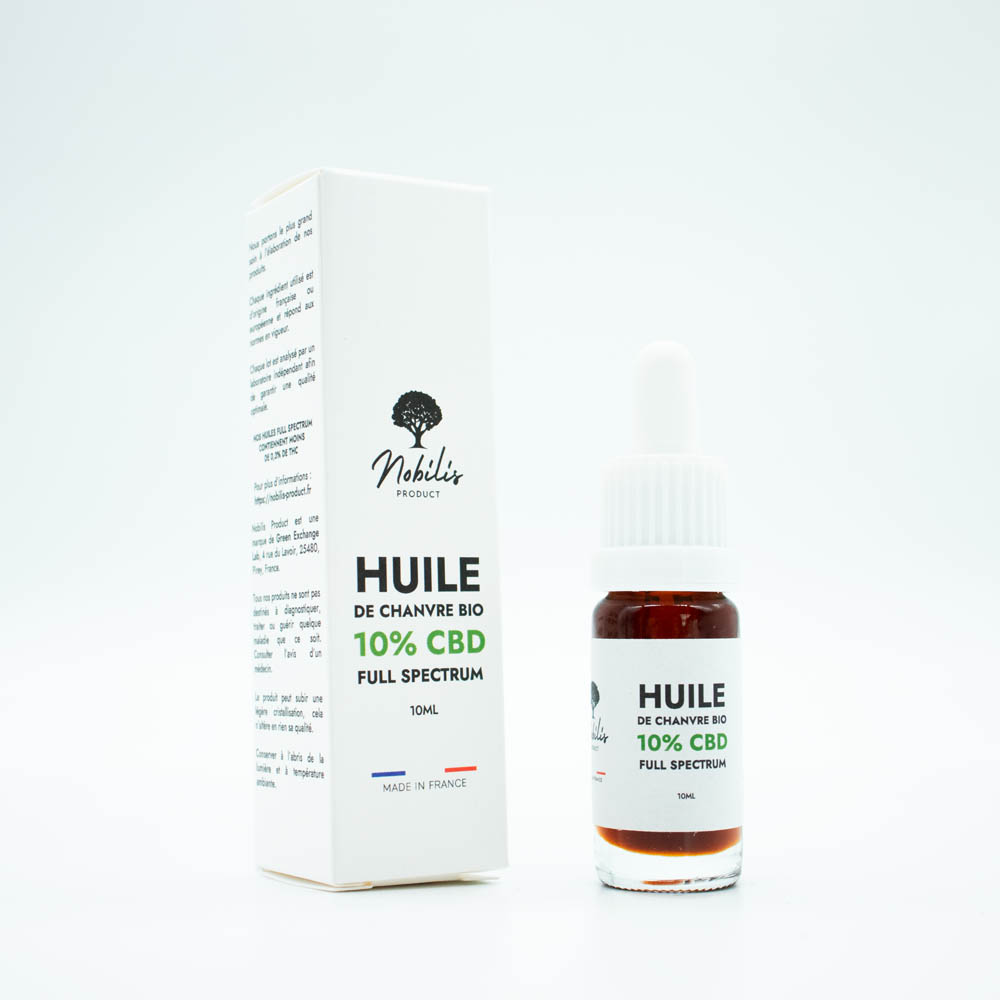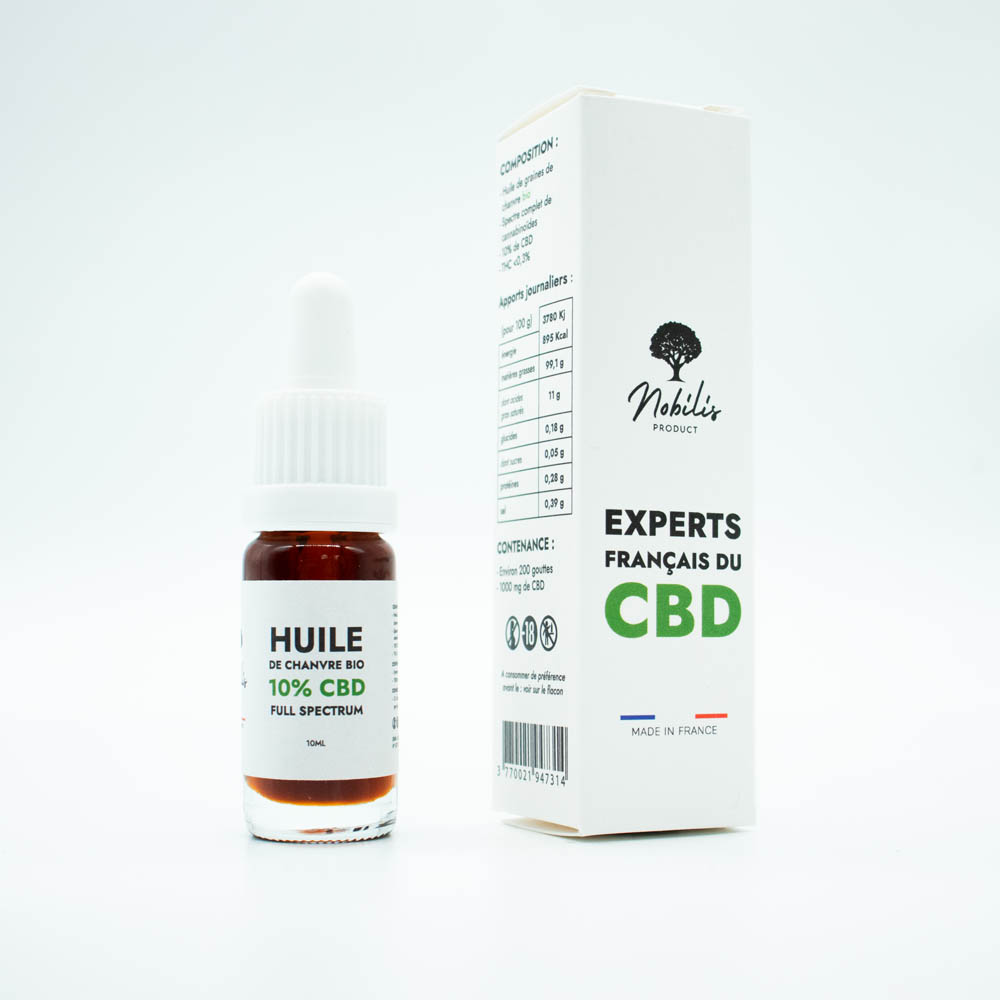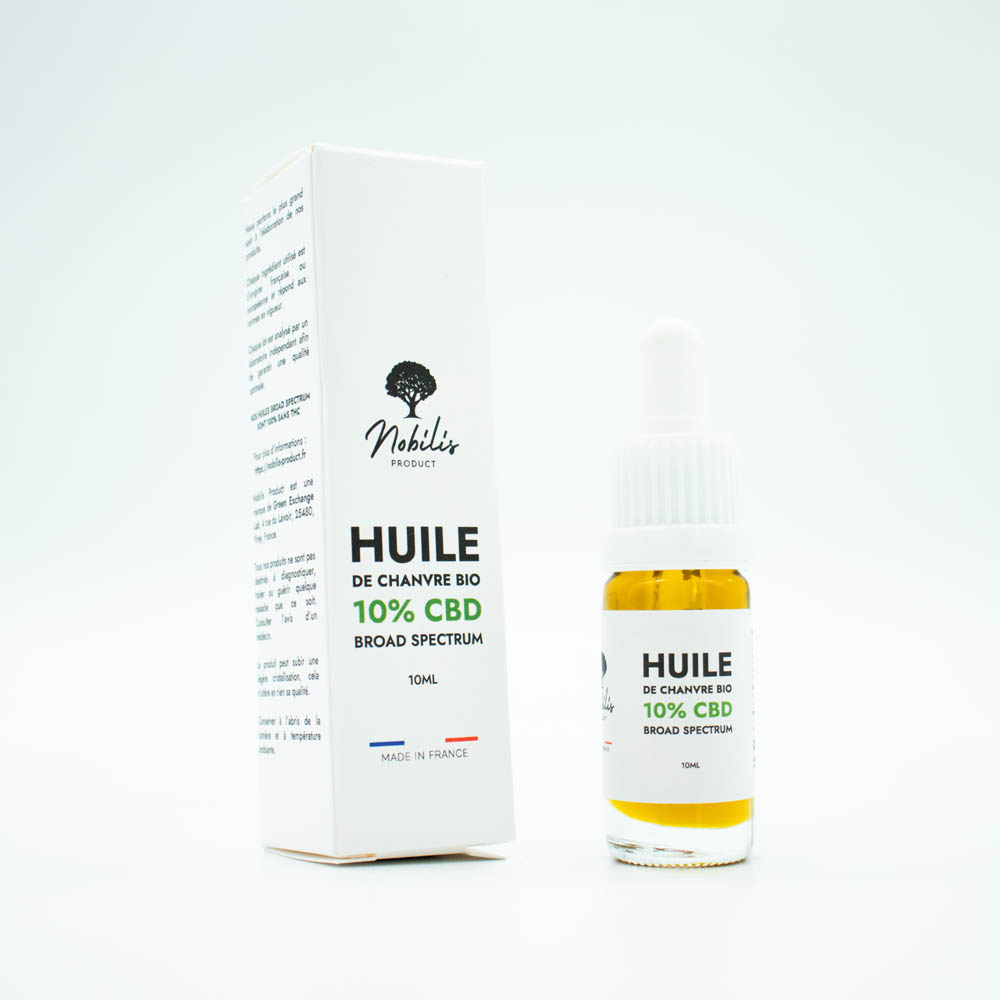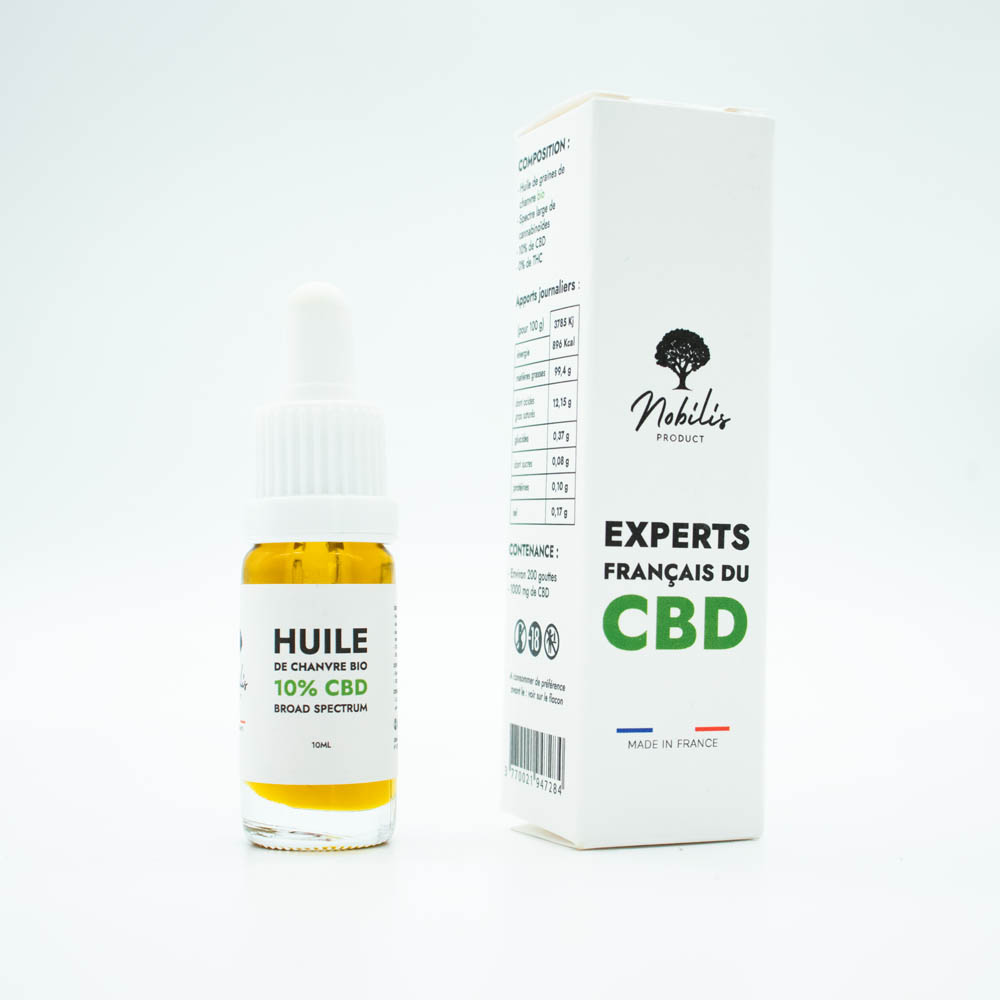Schizophrenia is a psychiatric disorder affecting over 600,000 people in France. [1] Although antipsychotic medication enables most patients to lead an almost normal life, it proves ineffective in almost a quarter of cases. What's more, these treatments are accompanied by sometimes disabling side effects, prompting more and more patients to seek a natural alternative.
In this sense, cannabidiol (CBD), a legal molecule with no intoxicating effects derived from cannabis, appears to be an ideal candidate. Here's why.
Table of contents
Schizophrenia: origins, symptoms and treatments
Schizophrenia is a serious psychiatric illness classified as a psychotic disorder. In other words, it results in a loss of contact with reality.
Disease triggers
The origin of schizophrenia is poorly understood and appears to be multifactorial. According to experts, it may result from a genetic predisposition combined with an external environment conducive to the development of the disease.
One possible genetic cause is mutation of a gene linked to neuronal plasticity. However, the role of genetics would have a limited impact compared with that of environmental factors such as stress and the use of psychoactive substances like cannabis, especially during adolescence.
Indeed, chronic stress can lead to alterations in certain key biological mechanisms (notably neurogenesis) involved in mental health. Cannabis, and THC in particular, activates brain regions involved in psychiatric pathologies. We'll come back to this point a little further on in our article.
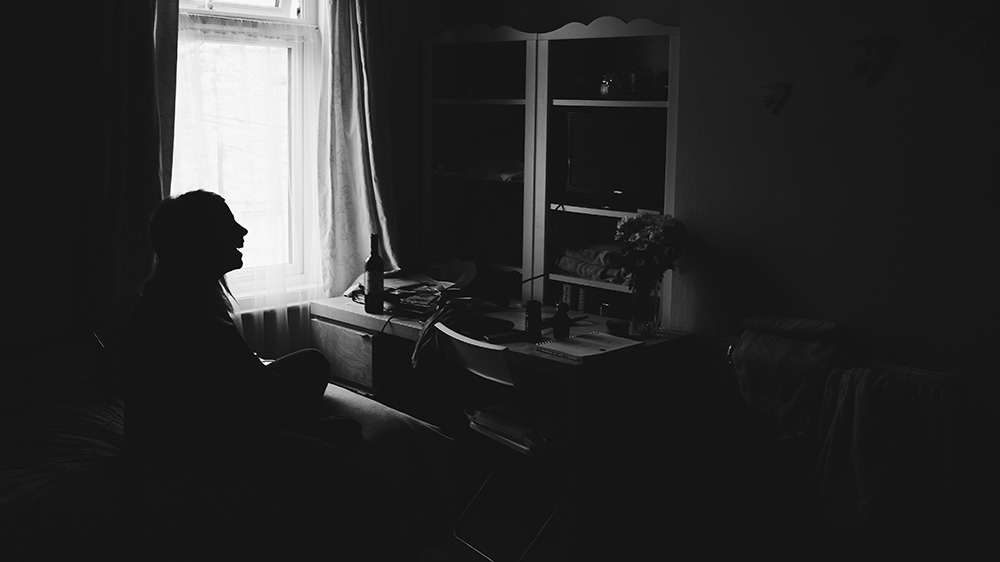
Symptoms and their impact on quality of life
Diagnosis of schizophrenia is complex, partly because the disease develops gradually, with the onset of mild symptoms sometimes attributed to the upheavals of adolescence, and partly because symptoms vary enormously from patient to patient.
There are three types of symptoms:
- Positive symptoms (sometimes called "productive"): sensory hallucinations and delusions. The person sees and hears things that exist only for them, and their reasoning is illogical and paranoid;
- Negative symptoms: depressive state, apathy, social isolation, absence of emotions, etc. ;
- Finally, there are dissociative symptoms: disorganized thinking, incoherent speech, difficulty concentrating, difficulty planning simple tasks, and so on.
All these symptoms obviously have a very negative impact on patients' quality of life. In fact, around half of them attempt suicide, and between 10 and 20% die as a result.
What about treatments?
Treatment of schizophrenia varies from one individual to another (intensity of symptoms, age, social background, use of addictive or non-addictive substances, etc.).
However, in most cases, patients are prescribed second-generation (or "atypical") antipsychotics. These drugs block the dopamine and serotonin receptors that are overexcited in people with schizophrenia. [2]
Despite their efficacy, these treatments can sometimes be difficult to follow, as they entail unpleasant side-effects (weight gain, tremors, involuntary movements, drowsiness, aches and pains, etc.).
In all cases, schizophrenia requires treatment by a psychiatrist and psychologist. Before taking CBD, it's imperative to consult them!
The close link between cannabis, cannabidiol and schizophrenia
First of all, let's remember that cannabis contains two main active molecules: THC and CBD. It's important to know that their effects on our organism are drastically opposed, especially in the case of schizophrenia.
Indeed, as we shall see, the former is detrimental, while the latter could be beneficial.

THC and its effects on brain chemistry
As we mentioned earlier, cannabis use is a risk factor in the development of the disease. In fact, a review of 10 studies involving analyses carried out on a total of 67,000 people shows that cannabis use increases the risk of schizophrenia by a factor of 4. [3]
However, in reality, it's not entirely accurate to attribute these results to cannabis, as low-THC varieties would have no impact on the development of the disease. In fact, it's THC that can potentially harm mental health. On several levels:
- Its consumption can potentially cause psychosis-like effects inhealthy subjects. Known as "bad trips", these unpleasant experiences, during which it is possible to experience intense paranoia, panic attacks or visual and auditory hallucinations, can affect anyone, regardless of their mental health;
- Although THC intake may alleviate negative symptoms (stress and anxiety in particular), studies have also shown that THC intake worsens positive symptoms such as hallucinations and delusions. [4] ;
- Finally, it has also been shown that schizophrenics who use THC-rich cannabis are more likely to relapse. [5].
The antipsychotic action of CBD
CBD, on the other hand, has no intoxicating effects. And it doesn't appear to be harmful to either schizophrenics or healthy people. What's more, although it too acts on brain chemistry (indirectly), it has been shown not to stimulate the same areas as THC. It may even counteract its psychotropic effects.
Indeed, an experiment [6] in which volunteers were given 600 mg of CBD or a placebo after an intravenous injection of THC showed that psychotic symptoms of paranoia manifested themselvesmore mildly in those given cannabidiol (CBD).
CBD's anti-psychotic properties are also exploited in the formulation of certain drugs. For example, Sativex, prescribed to multiple sclerosis sufferers, contains both THC and CBD, both to take advantage of CBD's pain-relieving properties and to counteract the intoxicating effects of THC.
CBD against the positive symptoms of schizophrenia
If CBD is able to counteract the psychotropic effects of THC, couldn't it also combat the hallucinations and delusions caused by schizophrenia?
Indeed, some studies indicate that CBD's anti-psychotropic action is potentially beneficial in schizophrenics.
Although CBD's mechanism of action is still poorly understood, we do know that it opposes the action of the FAAH enzyme, which degrades a key neurotransmitter in mental health, particularly in schizophrenia: anandamide.
Indeed, studies [7] have shown that people with schizophrenia have levels of anandamide 8 to 10 times higher than healthy people. Excessive secretion of this neurotransmitter is thought to be due to a compensation mechanism. This means that anandamide levels rise to alleviate psychotic symptoms.
Through its action on the FAAH enzyme, CBD helps increase anandamide levels, making it a serious treatment alternative to traditional antipsychotics. What's more, taking CBD does not cause any unpleasant side effects.
-
CBD Oil 10% Full Spectrum - Nobilis Product
Rating 4.75 out of 524,90 €Discover our Full Spectrum 10% CBD oil from hemp grown in France, without additives or GMOs. Its richness in cannabinoids and terpenes guarantees an optimal surrounding effect for deep relaxation and natural well-being. Practical 10 ml bottle with pipette for precise dosage.
Our Full Spectrum 10% CBD oil is :
🇫🇷 Manufactured from A to Z (from hemp extraction to bottling) in our French laboratory.
🧪 Made with CBD crude to provide all the cannabinoids, flavonoids and terpenes.
✅ Analyzed by an independent laboratory for each batch to guarantee quality.
-
CBD Oil 10% Broad Spectrum - THC-free
Rating 5.00 out of 524,90 €Discover our Broad Spectrum 10% CBD oil: a gentle, natural formula that offers all the benefits of CBD, without THC. Ideal for daily use, it promotes general well-being while keeping your body in balance. This product is perfect for discovering the benefits of CBD. 10ml bottle.
Our Broad Spectrum 10% CBD oil is :
🇫🇷 Manufactured from A to Z (from hemp extraction to bottling) in our French laboratory.
🧪 Made with CBD distillate to provide all the cannabinoids except THC.
✅ Analyzed by an independent laboratory for each batch to guarantee quality.
CBD against the negative symptoms of schizophrenia
The molecules synthesized in cannabis, such as CBD, have a particular affinity with our organism. In fact, they have the ability to activate and/or inhibit a whole range of receptors located throughout the body. This set of receptors is known as the "endocannabinoid system" (ECS), and its main role is to maintain our body in a state of homeostasis, i .e. equilibrium.
SEC receptors control a whole host of key biological processes, including internal temperature, blood sugar levels, immune response, and - and this is what interests us in the case of schizophrenia - the synthesis of certain hormones.
In fact, according to several studies, CBD is capable of regulating the production of serotonin, which is none other than the happiness hormone that induces a state of serenity when released. The domino effect is to reduce stress, anxiety and depression, and even improve sleep quality.
As we saw earlier, stress, anxiety and depression are all symptoms of schizophrenia. Taking CBD could help alleviate these symptoms and, consequently, improve patients' quality of life.
CBD, a potential natural treatment for schizophrenia?
As we have seen, CBD's antipsychotic and regulatory properties are potentially capable of stemming most of the symptoms caused by schizophrenia. Further studies are needed, but the initial results are very encouraging and point in the direction of a possible cannabidiol-based treatment:
- In the UK, some patients received 1000 mg CBD/day in addition to their treatment, while others received a placebo instead of cannabidiol. Those treated with CBD reported fewer psychotic symptoms. [8] It would thus seem that CBD could provide a benefit to current treatments, or at least not interfere with their effects;
- In another study, scientists wanted to compare the efficacy of CBD with that of traditional treatments. They concluded that CBD and antipsychotics have comparable efficacy, except that CBD has no side effects. [9]
Can you take CBD if you suffer from schizophrenia?
As we've seen throughout this article, taking CBD seems to be able to help reduce the intensity of symptoms linked to schizophrenia. Even so, there are several considerations to keep in mind:
- First of all, it is imperative to seek the advice of your psychiatrist so that he or she can carry out a follow-up;
- Secondly, it's important to know that there's nothing written about dosage, and that this can affect the action of CBD. In fact, each person is more or less sensitive to cannabinoids, which means that there is no universal dosage and that the ideal dose of CBD must be determined on a case-by-case basis. For this, a gradual approach is preferable;
- Finally, note that some CBD products contain THC. Admittedly, the latter is present at less than 0.3%, which is theoretically insufficient to cause any effect. However, when in doubt, avoid so-called "full spectrum" products and always check the composition by requesting the results of laboratory analyses.
If you have any questions, please do not hesitate to contact our team.

